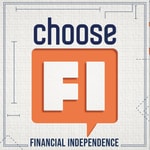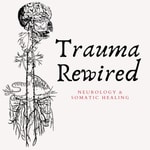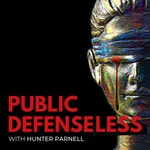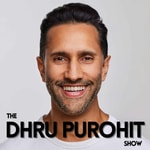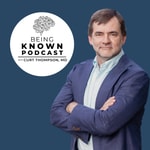The TopCast: The Official Music Teachers' Podcast – Details, episodes & analysis
Podcast details
Technical and general information from the podcast's RSS feed.
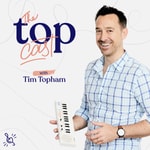
The TopCast: The Official Music Teachers' Podcast
Tim Topham
Frequency: 1 episode/9d. Total Eps: 419

Recent rankings
Latest chart positions across Apple Podcasts and Spotify rankings.
Apple Podcasts
🇨🇦 Canada - music
29/06/2025#89🇨🇦 Canada - music
27/06/2025#81
Spotify
No recent rankings available
Shared links between episodes and podcasts
Links found in episode descriptions and other podcasts that share them.
See all- https://pixabay.com/
2354 shares
- https://www.upwork.com/
1870 shares
- https://suicidepreventionlifeline.org/
1399 shares
RSS feed quality and score
Technical evaluation of the podcast's RSS feed quality and structure.
See allScore global : 42%
Publication history
Monthly episode publishing history over the past years.
420: Open Letter to Parents of Piano Students
lundi 23 juin 2025 • Duration 16:46
Too often, I see well-meaning parents unknowingly limiting their child’s potential by holding onto outdated ideas of what music lessons should be. In this episode, I’m sharing a personal message I wrote to help shift that mindset—an open letter to piano parents. It’s a heartfelt invitation to move beyond exam-driven expectations and embrace a more creative, joyful, and lasting approach to learning music. Drawing on my own experiences and conversations with educators around the world, I’ll share why it’s time to rethink how we define success in music education.
- Tim shared his open letter to help parents support modern music education.
- He explained the shift from exam-based to creative learning in piano teaching.
- The value of music lessons goes beyond exams and competitions.
- He emphasized the long-term benefits of music on brain development and life skills.
- Tim outlined the real costs—time, energy, money—involved in music education.
- He warned against the “exam express” that can lead to student burnout.
- The importance of curiosity, creativity, and relevance in music lessons was discussed.
- Tim encouraged parents to trust teachers using new, student-focused approaches.
- He urged parents not to push exams unless guided by the teacher.
- Tim highlighted that lifelong musical enjoyment should be the real goal.
Links Mentioned
Thank you for tuning in!
Consider implementing the ideas from this podcast by writing several actionable steps for your teaching practice if it’s inspired you.
If you enjoyed today’s show, please leave us a review on Apple Podcasts, which helps other teachers find our show.
Stay updated by subscribing to this show, and get automatic delivery to your device every time a new episode goes live! We publish on Mondays weekly.
TopMusicPro 14-Day Free TrialHeard about TopMusicPro Membership? As a valued podcast listener, I’d like to offer you a special chance to try our community free for 14 days. You can access a treasure trove of teaching resources, professional development courses, and creative lesson ideas. Click the link below to access your exclusive 14-day free trial for our Studio Membership.
TOPMUSICPRO MEMBERSHIP 14-DAY FREE TRIAL419: Teaching Masterclass with TopMusicSheets Composer Anna Robinson
lundi 16 juin 2025 • Duration 40:38
- Anna shared how her pet-themed compositions were inspired by connecting with students’ pets during lockdown.
- The use of phrases like “ice cream for breakfast” to help students internalize tricky rhythms.
- The importance of tailoring rhythm games and phrases to each student’s interests.
- How she integrates movement and conducting to teach articulation and phrasing.
- Why she considers herself a pedagogical composer, writing with specific teaching goals in mind.
- How modulation and pivot chords are introduced naturally in her compositions.
- Tim noted how Anna’s left-hand writing often uses patterns that look complex but are easy to teach and break down.
- How composing often begins as a response to a specific student need or learning gap.
- Modeling creativity and improvisation during lessons as a way to normalize student composition.
- Anna's advice to teachers and composers.
Links Mentioned
- Anna's website: Flying Ivories Music
- Anna's YouTube Channel: Flying Ivories Music
- Find more about TopMusicSheets here.
- Download the latest TopMusic Magazine edition here.
Today's Guest Anna Robinson started learning the piano at age 6 and flute at age 12. After graduating in Mathematics from University College London, she worked in administrative roles in classical music in London for several years before moving to Melbourne and working in the world of opera and artist management. After gaining performing and teaching diplomas in piano, Anna left the opera world to focus on teaching. Her student roster quickly grew, and she currently teaches at two government schools whilst maintaining a busy home studio. An experienced accompanist, Anna enjoys collaborating with fellow musicians of all ages and welcomes further opportunities to perform in this special supportive role. She regularly accompanies AMEB and VCE exam candidates; at eisteddfods and auditions; for choirs, musicals, school ensembles and instrumental teachers’ studio concerts. Thank you for tuning in! Consider implementing the ideas from this podcast by writing several actionable steps for your teaching practice if it’s inspired you. If you enjoyed today’s show, please leave us a review on Apple Podcasts, which helps other teachers find our show. Stay updated by subscribing to this show, and get automatic delivery to your device every time a new episode goes live! We publish on Mondays weekly. TopMusicPro 14-Day Free Trial Heard about TopMusicPro Membership? As a valued podcast listener, I’d like to offer you a special chance to try our community free for 14 days. You can access a treasure trove of teaching resources,...
410: TEMPO – The New Online Conference from MTNA
lundi 14 avril 2025 • Duration 18:26
- Michael shared about the new online conference from MTNA called TEMPO.
- He described his role in MTNA and as an assistant professor at Baylor University.
- His project "Piano Tricks," focused on fingering redistributions for piano pieces.
- The importance of TEMPO being an accessible and cost-effective online MTNA conference.
- How is TEMPO different from MTNA’s national conference?
- What are some of the highlights of TEMPO?
- How can listeners attend and register?
- He shared some of the topics that the sessions will cover, including international repertoire.
Guest Links
- Michael's Website: MichaelClarkPiano.com
- Michaels' Instagram: @michaelclarkpiano
- Michael's YouTube Channel: www.youtube.com/@michaelwinstonclark
Links Mentioned
- Click here to find out more about TEMPO and use code TOP25 at checkout for 20% off registration. (The conference is scheduled for April 25-26, with early bird registration available until April 15)
- TopMusicPiano Podcast 061: Finding Your Creative Voice with Leila Viss
Today's Guest Michael Clark is a pianist, teacher, and scholar noted for his “natural, clear, and nuanced” performances (Piano Magazine). An advocate for the music of Florence Price, he made the first studio recording of her complete piano waltzes for Navona Records, edited the first publication of twenty of her intermediate pieces for Hal Leonard, and has performed her works around the United States. Clark also researches traditions of piano fingering and is the founder of PianoTricks.net, an online database of fingerings and redistributions for over 1000 passages from the piano repertoire. He serves as Assistant Professor of Piano at Baylor University in Waco, Texas. Thank you for tuning in! Consider implementing the ideas from this podcast by writing several actionable steps for your teaching practice if it’s inspired you. If you enjoyed today’s show, please leave us a review on Apple Podcasts, which helps other teachers find our show. Stay updated by subscribing to this show, and get automatic delivery to your device every time a new episode goes live! We publish on Mondays weekly. TopMusicPro 14-Day Free Trial Heard about TopMusicPro Membership? As a valued...
320: Performance Anxiety: Helping Students Cope with the Bulletproof Musician (Replay)
jeudi 9 mars 2023 • Duration 01:07:59
-
- Why teaching performing skills should be a part of your piano teaching.
-
- Visualisation exercises you can do even with your youngest students.
-
- How to turn off self-criticism when performing.
-
- How you can help your students to focus during their performance.
-
- What diaphragmatic breathing is and why you should be teaching it.
-
- How to practice the lead up to a performance.
Links Mentioned
Today’s Guest Noa Kageyama is a performance psychologist and Julliard faculty member and is the performance...
319: How to Track Student Progression Without Piano Exams with Serena Mak
jeudi 2 mars 2023 • Duration 46:00
-
- Serena shared a brief overview of her background and her studio.
-
- The catalyst that changed her mindset about piano exams.
-
- Is the rushed and linear approach of the “exam express” a limiting factor to creative teaching?
-
- Serena explains the quote that she got from an ABRSM examiner on why exams is like taking a body temperature test.
-
- An overview of Serena's Ted Talk called “Exposing Music Exams and the Distinction Delusion."
-
- What’s the best way of recording musical progress technology-wise?
-
- The effects and the changes on her teaching when she changed her mindset about piano exams.
-
- Serena shared the story on how she came to do a TEDx gig.
https://youtu.be/ZuX89b-XAJc Links Mentioned
318: Innovative Scale Practice Ideas for Piano Teachers with Nicola Cantan
jeudi 23 février 2023 • Duration 38:56
-
- Where should we start when teaching scales?
-
- Understanding the value of learning scales.
-
- How improvising has changed how students look at scales.
-
- When do you start learning scales?
-
- Tips on how to introduce scale fingering and in what order.
-
- Aligning scales with the music that our students are playing.
-
- What can we do if a student is struggling with a particular scale?
-
- Innovative scale practice ideas for beginners.
Links Mentioned
Today’s Guest Nicola Cantan is a piano teacher, author, blogger, and creator of imaginative and engaging teaching resources. She loves getting piano students learning through laughter, and exploring the diverse world of music making through improvisation, composition and games. Nicola’s Vibrant Music Teaching membership site is helping teachers...
317: Top 5 Tips for Sight Reading Success with Rebecca Stewart
jeudi 16 février 2023 • Duration 41:57
-
- Rebecca shared a brief overview of her studio in New South Wales.
-
- How she founded Imagination Regeneration program for rural students and what it's all about.
-
- The importance of sight reading and why we should still intentionally teach and practise it.
-
- Rebecca's 5 tips to sight reading success:
-
- TIP 1: Using language learning technique approach to teach sight reading.
-
- TIP 2: Tangible ways that parents can follow up what teachers require for sight reading practise.
-
- TIP 3: Having a systematic sight reading curriculum using the idea of growth mindset and extrinsic motivation to boost students' confidence.
-
- TIP 4: Having a repertoire-rich teaching approach and learning pieces during a year, not just for exam pieces, positively affects your sight reading ability.
-
- TIP 5: How integrated creative/chord playing, improvising, composing and playing duets improves sight reading.
-
- Rebecca's 5 tips to sight reading success:
-
- A quote from Dr. Martha Baker-Jordan from her book, Practical Piano Pedagogy.
-
- Rebecca's sight reading workshop inside TopMusicPro Academy.
Links Mentioned
316: Blitzing Sight Reading and Aural Tests with Samantha Coates
jeudi 9 février 2023 • Duration 58:56
-
- Why isn’t there more focus on aural skills and sight reading.
-
- Why you should be making sight-reading a priority.
-
- The most important element of teaching sight reading.
-
- What makes someone a good sight-reader.
-
- Why knowing note names isn’t that relevant.
-
- A funny anecdote from one of Sam’s presentations.
-
- How to use an integrated approach to aural skills.
-
- Why single-note flashcards are a waste of time.
-
- Why rhythm and feel is more important than notes.
-
- Fun rhythm activities that actually work.
-
- What are aural tests really testing?
-
- Why singing in music lessons for all instruments is VITAL and how to get it happening.
-
- Why you can’t rush these aspects of music
Guest Links Mentioned
315: Replay – Is Classical Music Dying? A Chat with Benjamin Zander
jeudi 2 février 2023 • Duration 01:00:52
-
- The responsibility of music teachers.
-
- Being part of the “healing profession.”
-
- Our job as teachers.
-
- The impact of Beethoven and emotion in classical music.
-
- The significance of the upcoming Boston Philharmonic Symphony repertoire.
-
- What to say when you make a mistake.
-
- The responsibility of the conductor.
-
- Breaking down the formality of classical music.
-
- The depth of classical music when we turn off autopilot.
-
- Benjamin shared about Boston Philharmonic during COVID.
-
- Boston Philharmonic Youth Orchestra students.
-
- His thoughts on transitioning from performing to conducting.
-
- Helping students remove extra impulses.
-
- Who we are being in the world.
-
- How the “A method” might work in instrumental studio lessons.
-
- Last piece of wisdom from Benjamin Zander.
Links Mentioned
314: Replay – Research-Backed Insights on Piano Student Retention with Karen Gerelus
jeudi 26 janvier 2023 • Duration 47:31
-
- A short introduction on Karen and her studio.
-
- Karen talks about her research work called Parting Ways with Piano Lessons – comparing motivation between continuing and dropout piano students.
-
- Focusing on piano student retention in her research.
-
- Key factors for students quitting.
-
- The impact of parents being in the music lesson.
-
- Self-Determination Theory
-
- Motivating kids externally at the start is okay. Hopefully, the intrinsic will take over.
-
- Karen shares her own story on quitting and coming back to piano.
-
- Karen explains the quote “There is no relationship between practice time and motivation.”
-
- Thoughts for teachers about practicing and having a tough-love stance, a hard stance on, or being relaxed about it.
-
- Karen talks about what she found out about students dropping out because of the lack of popular repertoire.
-
- The reason why teachers are often quite resistant to offering autonomy in musical choice in their lessons.
-
- Giving students show-off pieces to boost their confidence and retain their interest.
-
- Recommendations for bridging the gap between external motivation and internal self-motivation in students.
